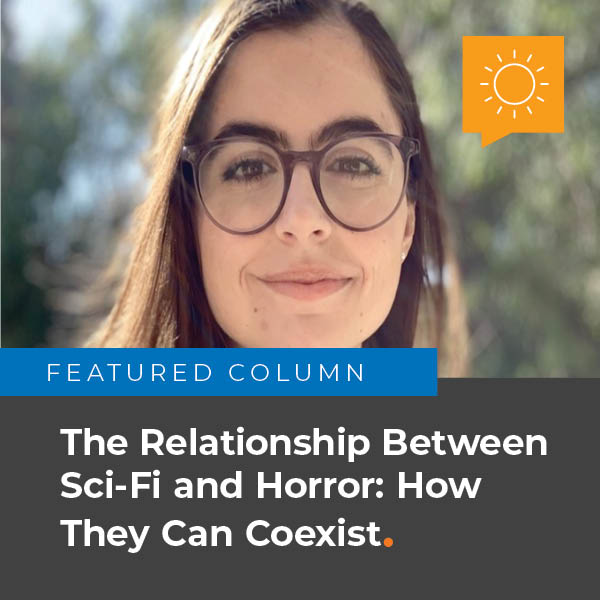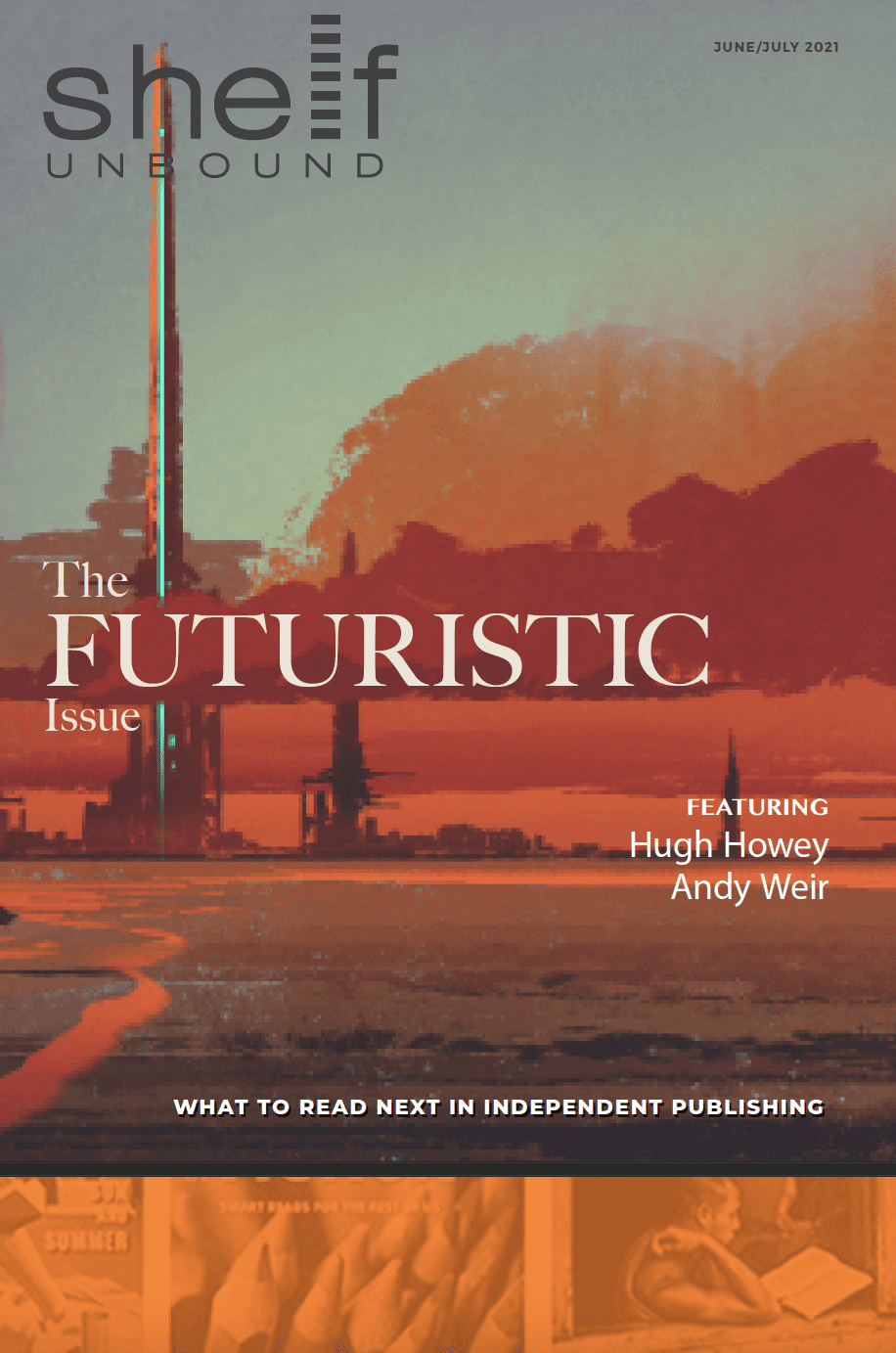BY ALYSE MGRDICHIAN

Sci-fi has proven itself to be a versatile and diverse genre. This is due predominantly to its ability to overlap with other genres, such as fantasy, adventure, romance, thriller, etc. However, the overlap that is most compelling, if done well, is that between sci-fi and horror. Horror in sci-fi can occur in nearly any time period or setting, as it plays predominantly with the universal fear of the unknown and/or the fear of what humanity is capable of. So, let’s look a bit closer at those two fears, and then dissect what it is that makes horror so memorable in the sci-fi setting.
First, there’s the fear of the unknown, which is better known in sci-fi as cosmic horror. H.P. Lovecraft is widely known as the writer who brought this subgenre into the public eye, with creations such as The Call of Cthulhu, The Colour Out of Space, and many more redefining horror in sci-fi. Cosmic horror, simply put, draws upon humanity’s collective fear of the unknown, making its readers feel small and helpless in the face of the incomprehensible. In this way, the creatures of cosmic horror are different than vampires, werewolves, ghosts, or other such humanoid monsters—they are beyond our understanding, which means that, if fought, they are incredibly difficult to defeat. Cosmic horror is often bleak because of this, and is, arguably, the most effective subgenre when it comes to evoking feelings of dread. However, while Lovecraft’s monsters are usually eldritch, the same dread can be achieved through more tangible creatures or situations (e.g., Alien, The Thing, etc.). In the two parenthetical examples given, there are monsters beyond understanding, true, but the characters are also isolated, which is pivotal in evoking feelings of dread and helplessness. In this way, the subgenre is usually characterized by a small, finite being stepping into the unknown and facing something bigger than them, whether that bigness be physical or metaphorical.
Then there is the fear of what humanity is capable of, which is a different sort of fear. This fear, arguably, pulls from the uneasy realization that “that could be us.” As readers, we may look at certain characters or societies and think, “How could they have taken things that far? How could a person/government be capable of those sorts of things?” But the horror of those questions comes from the understanding that, under the right circumstances, that could be you. That could be me. That could be us. Dystopias, for example, often pull from the fear of what humanity as a collective is capable of (rather than human individuals). Peace and prosperity for one group brings hardship and pain for the other, and vice versa (e.g., The Handmaid’s Tale)—so, is it within the capabilities of one group to choose prosperity for themselves, knowing full well that it comes at the cost of another group’s happiness? History says YES. On the other side of that coin, there is also the fear of what human individuals are capable of (rather than collective societies), which is something that a lot of survival novels pull from, since people tend to show their teeth when thrust together into life-or-death situations. We would all like to think that we would remain stoic and wise when faced with danger of any sort, but I’m sure that all the characters who eventually turned against each other thought that too. This is what makes novels following slow descents into madness so uncomfortable, because it makes us wonder, had we been in the characters’ shoes, would the same thing have happened to us?
In this way, there is an ever-present discomfort in sci-fi horror, regardless of what sorts of fear the story pulls from. The most chilling stories are usually a combination of the two aforementioned fears: the unknown, paired with humanity’s horrible potential, whether it be on an individual or societal level (e.g., Annihilation, The Dark Forest, The Thing, etc.) While horror movies have jump scares and atmospheric music to work with, a novel has words and words alone. In this way, uneasiness becomes a sci-fi novel’s most powerful weapon, since words can evoke discomfort easier than they can evoke feelings of startled fright. It’s also worth noting that uneasiness is a far more powerful emotion than shock alone, since shock is over in seconds while uneasiness lingers and stays with you long after you’ve closed the book. It roots itself into your mind, and it bothers you for far longer than a jump scare ever would (or could), leaving you unnerved by the horror of the unknown and the inevitability of human weakness. This is, arguably, what makes horror in sci-fi novels so memorable, if done well.

